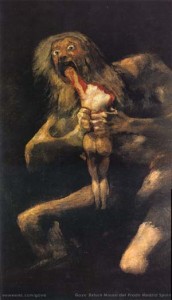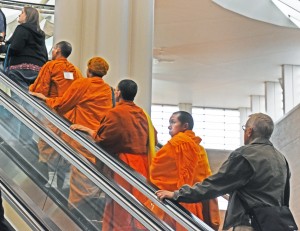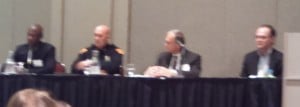In my work as a hospital chaplain I never know from day to day what I may be called upon to work with as I step into a patient’s room. Huntsville, Alabama is a religiously diverse community which includes Hindus, Buddhists, Muslims, Jews, Christians of many denominations, Pagans, Baha’i and others. While most of my patient encounters to date have been with Christian families, I have also been called upon to act as chaplain in grief work with other faiths as well.
Such encounters demand that I have a least a passing familiarity with the beliefs and practices of a fairly wide variety of world religions. I need to understand not only how they view the nature of Divinity, but also how they approach such issues as death, grief, suffering, family interactions, and other issues that arise in the crisis of the death or the impending death of a loved one.
One of the challenges of being an interfaith chaplain is then to educate oneself in the beliefs and practices of other religions. But more that an intellectual understanding is necessary when helping a patient or their family deal with end-of-life issues. In that moment one truly does have to walk in another’s shoes, even when those shoes tread a path that is different from our own. To do that it is essential that one accepts that what is truth for oneself is not necessarily truth for another. In fact there are many truths. Truth is different from fact in that it is highly colored by our own perceptions and experiences. What one may perceive as truth another might see as illusion. And yet that which each holds to be true can be and is equally valid. The first thing that an interfaith chaplain must be able to do, therefore, is to relinquish any concept of there being only a single truth in regards to religion and to acknowledge that all religions hold part of what is the ultimate truth within their beliefs.
Matthew Fox speaks to the many truths within world religions in his book One River, Many Wells. His viewpoint, which resonates deeply with me, is that all of the world’s religions are seeking the same goals through different theologies. In his book he quotes the Hindu mystic, Rajjab as saying; “The worship of the different religions, which are like so many small streams, move together to meet God, who is like the ocean.” Fox therefore holds all religions to be true at the same time as all are means of reaching the same ultimate goal.
For myself, I have come to the conclusion that if we strip away all of the accoutrements of the various religions the teachings of all of the multitude of faith groups across the world would boil down to two concepts. The first of these is how to honor the Divine by whatever name we know it. And the second is how to live rightly with our fellow man. It is interesting that this is reflected in the teachings of Jesus when he said, “You shall love the Lord your God with all your heart, with all your soul, and with all your mind. This is the first and great commandment. And the second is like it: You shall love your neighbor as yourself.” Yet such thoughts are also present in many religions, including much of modern Paganism.
So when I step into a patient’s room or when I stop to comfort a family member weeping in the hallway, I begin by acknowledging our shared truth. That is the truth of our humanity and of the grief and suffering we all feel in confronting the death of someone we love. I can speak from the core of their religious beliefs without conflict because their truth and my truth are simply different branches of the same river of faith and of our understanding in the nature of the Divine.















